It is impossible to describe these two days in a few words. Once again, an extraordinary seminar thanks to the high-profile of the speakers and the engagement of the participants.
The two days of seminar flew by, although at the end it seemed as if we had been together for a week given the rich, dense, and extremely interesting contributions and exchanges.
We succeeded in doing what we had aimed to do: to create a welcoming and enriching space to think together about the meaning of school and to leave “recharged” and with new ideas. This was confirmed by the many warm returns we received at the conclusion of the seminar and in the days that followed. “The more I think about it, the more I liked the ADi conference” was the return a few days later of an eminent participant.
The speakers thanked us for the hospitality, for the quality of the seminar – they took notes and told us they learned a lot – and also for the atmosphere they experienced in the Sala Bolognini. This is what very finely expressed Olli Pekka Heinonen, who wrote to us that he was impressed by the atmosphere of the event and the profound quality of the questions and discussions, adding that “it takes time and dedication to create something like ADi, and you have such a valuable community….”
There. We are a valuable community that has been built up over all these years, we knew that, but we are pleased that it is also perceived by those who come from outside, from another country, another culture, speak another language, someone who travels and sees many conferences and educational spaces.
It is part of the DNA of Adi to invite – along with Italian speakers – international speakers, who bring cutting-edge reflections and experiences to Italy, and speak to a qualified and attentive audience, listen to each other and breathe in the atmosphere of a group of passionate and prepared professionals. It is essential for us to go beyond national borders, but also to help spread a positive and committed image of the Italian school around the world.
The speeches were animated by a broad cultural vision and rooted in a significant and indispensable value framework in this phase of radical transformation related to Artificial Intelligence and beyond.
The speeches were many and rich. A summary that invites one to delve deeper is the one that came out in two parts in Tuttoscuola on Monday, 26 (https://www.tuttoscuola.com/seminario-adi-1-alla-ricerca-del-senso-perduto-della-scuola/ and https://www.tuttoscuola.com/seminario-adi-2-spunti-per-una-nuova-narrazione-educativa/). We know more articles are in the pipeline; we will inform you of them on this same page as they come out.
Answers to the question posed at the end to all participants, “What I take away from this seminar is…” can be found at this link: https://adiscuola.it/assets/uploads/2000/03/MentimFine24febbraio.pdf
In her concluding speech, Mimma Siniscalco summarized the interventions around three words:
– human flourishing, full human fulfillment, which today more than ever is at the heart of schooling
– struggling, the persevering effort in the face of difficulty, which is a place where new connections are made and new paths open up
– sharing, telling and sharing the daily stories of those who work in the school, to bring out the meaning of schooling and the professionalism of those who work in it.
And here are some of the messages we received from speakers and session coordinators
 |
I feel it was, as always, a great seminar, unique and inspiring opportunity for all. See you soon, good work to us! (Giulia Guglielmini) |
 |
It was a pleasure for me to be able to attend the conference in the beautiful city of Bologna and take part in the discussions around the lost meaning. I was impressed by the atmosphere of the event and the deep character of questions and discussions. It takes time and devotion for something like ADi to be created, and you have such a valuable community clearly flourishing under your leadership. (Olli Pekka Heinonen) |
 |
I am leaving for the airport now! Just wanted to say a big thank you for your warmth and hospitality (Kiran Sethi) |
 |
I just wanted to say a big THANK YOU: it was a beautiful and enriching experience, I came home happy and with new ideas. Really thank you for everything, including the beautiful dish, as well as the perfect organization that was never cold, indeed! We will definitely be in touch soon (Gianluca Argentin) |
 |
The organization of this meeting was very perfect and wonderful. I have also benefited a lot from this meeting. I have learned a lot of important research results and information. I hope that you will have the opportunity to come to China National Academy of Edcuational Sciences (CNAES). Thank you again. Best regards (Zhu Xinyu) |
 |
I was really honoured to participate. The event was extremely informative and I learned so much. I am happy to help in any way I can. (Suzanne Dillon) |
 |
Thank you and heartfelt congratulations for the nice conference you organized: very interesting, with many languages and a nice atmosphere indeed. I hope there can be more opportunities for collaboration in the future. Thank you for everything. (Elena Marta) |
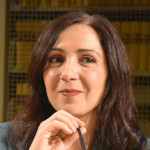 |
I really enjoyed it, I learned a lot and I saw a different school from the collective imagination that I thought was great! Until the next (hopefully soon) opportunity! (Daniela Marzana) |
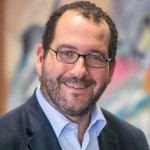 |
It was a real pleasure to be with you, and feel the energy and the will for rethinking education that you are promoting. Do count on me for future collaboration! (João Costa) |
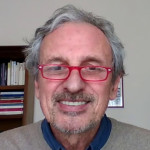 |
Thank you for the invitation! I found everything pleasant and interesting, the atmosphere and quality were excellent, I imagine everyone was happy. Hoping to collaborate again (Paolo Jedlowsky) |
 |
It was an immense honor to be able to participate and the meeting was wonderful, I hope you can now get some rest because I imagine how tiring it must have been, organizing an event of this magnitude. With much gratitude (Ilaria Gaspari) |
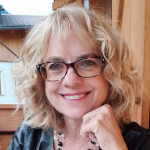 |
It has been a few days already since the Bologna conference. And I want to thank you wholeheartedly for the invitation and hospitality. It was an honor for me to be called as a speaker in such a high-level and qualified context. And to be able to meet so many valuable and competent people. And I hope to have the opportunity to collaborate again (Clelia Tollot) |
And lastly, a photo gallery:
***
Lene J.Lange’s post on Linkedin:
A few weeks ago I took part in ADI SCUOLA’s super inspiring international seminar, In Search of Lost Purpose. What stood out is a clear need to reimagine education locally in a world of complex challenges, complex needs and complex futures so that education becomes deeply relevant, helpful and meaningful to our young generations and the lives they wish to live. The biggest experiment in education today is to not change what takes places in our classrooms. We know what to do. What are we waiting for?
Every year ADI SCUOLA invites extraordinary people in education to share their thoughts, findings, endeavors and suggestions for the future of education – something I am privileged to take part in on or behind the scenes.
Here’s a few of the thoughts that still tickle my mind from two inspiring days:
🌏 Olli-Pekka Heinonen presented a compelling case for leading change in education from the future, moving away from the linear projections of past knowledge that often inform our decisions and that are no longer valid in a complex world.
🎯 João Costa, education minister in Portugal, has done what many talk about but haven’t found the way around: Reducing the curriculum massively to 12 core competences from which schools are encouraged locally – teachers and students – to develop in their own way. Lots of inspiration when diving into this and the reasons behind it! hashtagLessismore
🤖 Li Yongzhi shared how China is moving fast to rethink the teaching profession where teachers work in partnership with AI in tech-infused learning environments (4 million teachers trained until now). This provides realtime information to teachers about learning, engagement, effort and much more to enable personalised support while also not leaving much of an escape from scrutiny for students. It’s a real balance of helpful benefits and ethics. Someone mentioned, probably Wojciech Wątor, that teachers should not worry about being replaced with AI but they may very well be replaced with teachers who are good at collaborating with AI.
🧠 Andreas Schleicher continues to stress the importance of critical thinking, problem-solving and other 21st century skills in a world of conflict, global challenges and post-truth, and urges us to put well-being at the centre of our efforts.
Huge congratulations Mimma Siniscalco and ADI team on a remarkable tour-de-force for the future of education, beautifully picking up the baton from visionary Alessandra Cenerini, founder of ADI, whose commitment to innovation in education is unparalleled. Mimma, mindblowing days!! Truly thankful for our continued partnership of passion. 🔥
In case of Italian speakers, the video is in Italian language but you can enable subtitles as indicated below (red underline):

PRESENTATION
The reasons for a title

There was a long time, which lasted until the advent of mass education, when schools had a clear and shared meaning and teachers, though poorly paid, enjoyed a high social dignity. They had the key role of transmitting values and forming national consciousness. A school in which society did not enter, nor the economy, not even childhood and youth, with their problems and culture, only “students” entered, respectful of strict discipline within protected environments, separated from the rest of the world.
The school, as François Dubet says, was a kind of “sanctuary” where professors exercised unquestioned authority, school culture had strong legitimacy, and degree certificates had social utility. That school, though far from egalitarian, remain, like Proust’s “madeleine,” in the memory and nostalgia of many teachers and intellectuals.
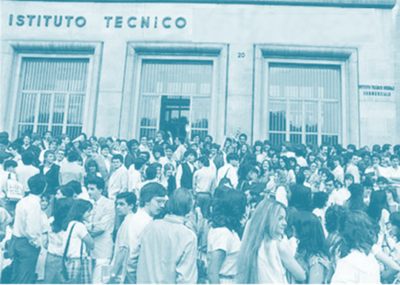
Mass schooling disrupted that “sanctuary.” And the teachers, Dubet continues, felt that the school had being invaded by “barbarians” – the children of the working classes, of immigrant families – who were trying to unhinge the transmission of knowledge as it had been conceived until then. The school opened its doors and was invaded by hordes of pupils bringing in all their problems, related to mass media propaganda, immigration, sexuality, parental divorce, etc. The school failed to cope with this enormous mutation, not understanding that the mass schooling is not simply the traditional schooling in amplified dimensions, it is a completely different school. A page of history has been turned, and it is not by recalling the old model that we regain lost meaning.

Today we are at a further turning point. As Yuval Noah Harari has written and described, humanity “is experiencing unprecedented revolutions” to which schools and new generations are no strangers. Wars disrupting world balances, the impact of globalization in all fields, immigrations, the devastating consequences, at an environmental level, of the reckless use that man has made of the planet’s resources and a technological development that proceeds at exponential speed.
For millions of years there has been only organic life forms on the planet, now with AI, Harari reminds us, humans will coexist with inorganic life forms for the first time. And humans can be hacked, AI will know us better than ourselves and will be able to manipulate us.
What future does Artificial Intelligence prepare for us? What everyone agrees on is that it has the potential to produce both extraordinary benefits (health care, and education itself) and immeasurable harms. Whoever gains control of the flow of data in the world will not only be able to control the future of humanity, but the future of life itself. Experts are warning, and countries are moving to try to regulate its use before it becomes uncontrollable.
It is in this utterly unpredictable, yet ever-closer scenario that schools are called to redesign the meaning of their mission. The seminar aims to provide some insights for a new educational narrative.
THE THREE SESSIONS
As usual, the seminar will consist of three sessions on Friday morning, February 23rd, Friday afternoon and Saturday morning, February 24th.
The three sessions propose to reflect together on the meaning of school today from the perspective of teachers, students and knowledge.
First session Friday, Feb. 23 morning
Once upon a time, the teacher…

The first session, coordinated by Giulia Guglielmini, president of Fondazione per la Scuola, addresses crucial issues in the teaching profession.
What are the key elements that give meaning to teaching today? How can the stories of teachers who have built solid innovative relationships inspire and change perceptions of a profession floating in uncertainty? How can we use storytelling to make sense of our daily lives and motivate ourselves and others?
These topics will be addressed by: Gianluca Argentin, Professor of Sociological Theories and Social Change at the University of Milano-Bicocca and author of Gli insegnanti nella scuola italiana. Research and perspectives for intervention (2018); Suzanne Dillon, inspector at the Irish Ministry of Education and chair of the important Global Forum on the Future of Education and Skills 2030; Andria Zafirakou, author of best-sellers on teaching, vice-principal at Swiss Cottage School and winner of the Global Teacher Prize 2018; Paolo Jedlowski, professor of Sociology at the University of Calabria, one of the pioneers of the sociological study of narratives and considered the founder of the sociology of memory in Italy; Clelia Tollot, psychologist, expert in storytelling and autobiographical writing.
Second session Friday, Feb. 23 afternoon
Students, the invasion of the Temple

The second session is coordinated by Daniela Marzana, associate professor of Social Psychology at the Università Cattolica del Sacro Cuore of Milan, with a special interest in youth social engagement issues.
What do students think about school and how would they like it to change? On what to focus attention in order to making learning a meaningful and actively lived experience? How to personalize learning and make hostile disciplines, such as math, accessible and exciting, including by taking advantage of the opportunities offered by artificial intelligence?
These topics will be addressed by: Elena Marta, ordinary professor of Social and Community Psychology involved in the realization of the Youth Report, the most extensive research in our country on youth, conducted by the Youth Observatory of the Toniolo Institute; a group of Italian and foreign students’ voices; Kiran Sethi, founder and director of India’s Riverside School, which was listed among the world’s 10 best schools for innovation in 2023 and is among the five winners of the World’s Best School Prize 2023; Ilaria Gaspari, philosopher and author of Lezioni di felicità. Philosophical Exercises for the Good Use of Life (2019); Jo Boaler, professor of Mathematics Education at Stanford University’s Graduate School of Education and co-author of the California Department of Education’s Mathematics Framework; Wojciech Wątor, passionate mathematics teacher at Embassy International School in Krakow, Poland, who uses ChatGPT to personalize learning.
Third session Saturday, Feb. 24 morning
From Socrates to Artificial Intelligence

The third session, coordinated by Cristina Grieco, President of INDIRE, will address knowledge in the third millennium. What knowledge should be at the heart of education today? How to reconcile developments in artificial intelligence with the aspiration for humanitas? How to essentialize curricula? That is, how to contain their constant expansion and unsustainable overload while developing the knowledge, skills, attitudes and values that enable students to live today and improve and shape the future?
These topics will be addressed by: Olli-Pekka Heinonen, former Minister of Education of Finland, now Director General of the International Baccalaureate (IB); Veronica Boix Mansilla, senior researcher at Project Zero, at Harvard University, expert on “global competencies” in education; Li Yongzhi, President of the Chinese National Academy of Education Sciences in Beijing, former head of the education system in Shanghai, whose excellent results in PISA are known to all; Andreas Schleicher, Director of Education and Skills at the OECD, leading expert on school systems, their organization, results (he leads PISA) and innovations; João Costa, Portugal’s Minister of Education with a key role in the essentialization of curricula in his country.
INTERNATIONAL ADI MEETING 2024 PROGRAMME
IN SEARCH OF LOST MEANING
Insights for a new educational narrative
|
1st SESSION – FRIDAY MORNING, FEBRUARY 23rd 2024 |
|
|
ONCE UPON A TIME THE TEACHER… |
|
| 8:30 | Registration |
| 8:55 | Opening remarks – Mimma Siniscalco, President of ADi |
| 9:00 | Distinguished regards |
| 9:10 | Introducing the session – Giulia Guglielmini, President of Fondazione per la Scuola |
| 9:20 | “This day our daily school” – Gianluca Argentin, Professor of Sociology, University of Milan Bicocca |
| 9:40 | Discussion |
| 9:50 |
A compass for teaching: how to navigate through an unpredictable future – Suzanne Dillon, Chair of Advisory Group OECD Future of Education 2030 Global Forum – Ireland |
| 10:10 | Discussion |
| 10:20 | Coffee Break |
| 10:35 | Now to London: from the multicultural neighborhood of Brent, the winner of the Global Teacher Prize 2018! Flash of two Italian presenters |
| 10:45 |
What can we learn from the world’s “best teachers”? – Andria Zafirakou, Author, Vice Principal and the recipient of the Global Teacher Prize 2018
|
| 11:15 | Discussion |
| 11:25 | Narration in everyday life – Paolo Jedlowski, Professor emeritus of Sociology at Calabria University |
| 12:00 | Discussion |
| 12:10 | “It comes back to mind…” – led by Clelia Tollot, psicologist, storytelling and biographical writing expert |
| 12:40 | Conclusion of the session |
| 2nd SESSION – FRIDAY AFTERNOON, FEBRUARY 23rd 2024 | |
|
STUDENTS, THE INVASION OF “THE TEMPLE” |
|
| 2:30 pm | Introducing the session – Daniela Marzana, professor of Social psychology, University Cattolica del Sacro Cuore, Milan |
| 2:40 pm | Relationship patterns of Generation Z – Elena Marta, Professor of Social and Community Psychology, Member of the Scientific Committee of the Toniolo Institute’s Youth Report |
| 3:00 pm | Discussion |
| 3:10 pm | Students: voices from Italy and beyond |
| 3:30 pm | Discussion |
| 3:40 pm | Destination India, Riverside School – Flash by ADi |
| 3:50 pm | Every child can – Kiran Sethi, founder and principal of the Riverside School in Ahmedabad (Gujarat, India) |
| 4:10 pm | Discussion |
| 4:20 pm | Coffee Break |
| 4:40 pm | From Philosophy, the meaning of studying and seeds of happiness – Ilaria Gaspari philosopher and writer |
| 5:00 pm | Discussion |
| 5:10 pm | Who’s afraid of the Big Bad Math? – Jo Boaler, Professor of Mathematics Education, Stanford University |
| 5:25 pm | ChatGPT and personalized learning – Wojciech Wątor, Math teacher at Embassy International School of Cracovia, Poland |
| 5:45 pm | Discussion |
| 5:55 pm | “One day” – with the participation of the Music Academy – Bologna |
| 6:10 pm | Conclusion of the session |
| 3rd SESSION – SATURDAY MORNING, FEBRUARY 24th 2024 | |
|
FROM SOCRATES TO ARTIFICIAL INTELLIGENCE |
|
| 8:45 | Introducing the session – Cristina Grieco, President of INDIRE |
| 8:55 | Which knowledge and competencies for the 21st century school? – Olli-Pekka Heinonen, Director General of the International Baccalaureate |
| 9:15 | Discussion |
| 9:25 | Global Competence in Action: Revisiting our practice with the world in mind – Verónica Boix-Mansilla Harvard University |
| 9:45 | Discussion |
| 10:05 | Professional community and “invisible” technology in service of learning – Li Yongzhi, director of the China National Academy of Educational Sciences (CNAES) |
| 10:25 | Discussion |
| 10:35 | Coffe break |
| 10:50 | Education for human flourishing in the age of artificial intelligence – Andreas Schleicher, Director of OECD Education and Skills |
| 11:10 | Discussion |
| 11:20 | And now in Portugal, where education has made extraordinary leaps forward – Flash of two Italian presenters |
| 11:30 | Make curricula essential: the Portugal experience – João Costa, Minister of Education in Portugal |
| 11:50 | Discussion |
| 12:05 | Conclusion of the international meeting – Mimma Siniscalco |
SPEAKERS
SPEAKERS
1st SESSION
Gianluca Argentin
 Gianluca Argentin is an associate professor in the Department of Sociology at the University of Milan Bicocca. His research focuses largely on the analysis of the school system, with a focus on inequality and on the teaching staff and its work dynamics. Methodologically, Professor Argentin consistently integrates sociological analysis with evaluative research approaches. He has actively contributed to the design and implementation of several controlled experiments, promoting an evidence-oriented approach in educational policies. He recently published with Il Mulino the volume “Our Everyday School. The necessary change” (2021).
Gianluca Argentin is an associate professor in the Department of Sociology at the University of Milan Bicocca. His research focuses largely on the analysis of the school system, with a focus on inequality and on the teaching staff and its work dynamics. Methodologically, Professor Argentin consistently integrates sociological analysis with evaluative research approaches. He has actively contributed to the design and implementation of several controlled experiments, promoting an evidence-oriented approach in educational policies. He recently published with Il Mulino the volume “Our Everyday School. The necessary change” (2021).
Suzanne Dillon
 Suzanne Dillon, Chair of the Global Forum on the Future of Education and Skills 2030, has been involved in the Future of Education 2030 project since 2016 as Ireland’s governmental representative and she has been Chair of the project’s Advisory Group since Spring 2018. Suzanne was a secondary teacher before joining the Department of Education and Skills in Ireland. Her responsibilities as an Assistant Chief Inspector, included leading the Department’s Evaluation Support and Research Unit and, since 2016, providing advice on curriculum and assessment policy to the Department.
Suzanne Dillon, Chair of the Global Forum on the Future of Education and Skills 2030, has been involved in the Future of Education 2030 project since 2016 as Ireland’s governmental representative and she has been Chair of the project’s Advisory Group since Spring 2018. Suzanne was a secondary teacher before joining the Department of Education and Skills in Ireland. Her responsibilities as an Assistant Chief Inspector, included leading the Department’s Evaluation Support and Research Unit and, since 2016, providing advice on curriculum and assessment policy to the Department.
Andria Zafirakou
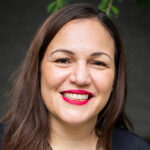 Andria Zafirakou is a Vice Principal in the Swiss Cottage School Research and Development Centre. Her specialist subjects are arts and textiles and for the last twenty years has worked in some of the most marginalised communities in London.
Andria Zafirakou is a Vice Principal in the Swiss Cottage School Research and Development Centre. Her specialist subjects are arts and textiles and for the last twenty years has worked in some of the most marginalised communities in London.
She has been recognised as an education leader through accolades such as being a recipient of the million dollar Global Teacher Prize in 2018, a Culture Leader by the World Economic Forum, a Member of the The High-Level Panel on the Teaching Profession which was established by the UN Secretary-General in 2023, a Thought Leader for the OECD, gained a Honorary Doctorate from the University of Worcester, and was honoured by the late Queen Elizabeth II for a MBE for her services to education.
She is the author of the bestselling book “Those who can, Teach” which was published by Bloomsbury in April 2021 and her most recent book “Lessons in Life” was published by Quercus in May 2023.
Paolo Jedlowski
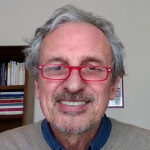 Paolo Jedlowski is professor emeritus of Sociology in the Department of Political and Social Sciences at the University of Calabria. He has also taught at the University of Naples “L’Orientale” and at the University of Italian Switzerland in Lugano. He has worked on the history of sociology and the sociology of culture, particularly delving into the study of the social aspects of memory and narrative.
Paolo Jedlowski is professor emeritus of Sociology in the Department of Political and Social Sciences at the University of Calabria. He has also taught at the University of Naples “L’Orientale” and at the University of Italian Switzerland in Lugano. He has worked on the history of sociology and the sociology of culture, particularly delving into the study of the social aspects of memory and narrative.
He has been vice-president of the Italian Association of Sociology and is a member of the editorial boards or scientific councils of numerous scientific journals and publishing series in the area of social sciences. He has more than 150 scientific publications to his credit. His books include The Knowledge of Experience (2008); Memories of the Future (2017); Common Stories. Narrative in Everyday Life (2022) and Spesesati (2023).
Clelia Maria Tollot
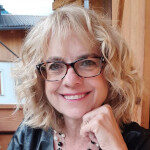 Clelia Tollot has been a primary school teacher for 35 years and is a psychologist, psychomotor therapist and hypnologist. She has been teaching General Pedagogy and Developmental Pedagogy at the Salesian Pontifical University, Turin branch IUSTO, for almost two decades. She leads an internship for future psychologists on storytelling and autobiographical writing. He has coordinated reading promotion projects and contributes to the magazine “Pepeverde. Readings and literature for children.” She works as an author for Sanoma Italia with which she published “On vacation with…” and the fourth- and fifth-grade language subsidiary “In the forest of books,” released in 2023. She is a Mindfulness trainer for Sanoma Academy and a practitioner of Zen meditation in the tradition of Master Thich Nhat Hahn.
Clelia Tollot has been a primary school teacher for 35 years and is a psychologist, psychomotor therapist and hypnologist. She has been teaching General Pedagogy and Developmental Pedagogy at the Salesian Pontifical University, Turin branch IUSTO, for almost two decades. She leads an internship for future psychologists on storytelling and autobiographical writing. He has coordinated reading promotion projects and contributes to the magazine “Pepeverde. Readings and literature for children.” She works as an author for Sanoma Italia with which she published “On vacation with…” and the fourth- and fifth-grade language subsidiary “In the forest of books,” released in 2023. She is a Mindfulness trainer for Sanoma Academy and a practitioner of Zen meditation in the tradition of Master Thich Nhat Hahn.
SPEAKERS
2nd SESSION
Elena Marta
 Elena Marta is a professor of Social and Community Psychology in the Faculty of Psychology at Sacred Heart Catholic University. She holds a degree in Philosophy in the Faculty of Letters and Philosophy of the Catholic University, where she completed her PhD in Social and Developmental Psychology and graduate school in Occupational Psychology. On the Brescia campus, he is director of the Center for Research on Community Development and Organizational Coexistence (CERISVICO), member of the Steering Committee of the Observatory for the Territory: Enterprise, Training and Internationalization (OpTer). President of the Italian Society of Community Psychology (S.I.P.CO) from 2016 to 2020, he is currently a member of both the Scientific Committee of the University Center for Family Studies and Research and the Youth Observatory – Youth Report – of the Giuseppe Toniolo Institute
Elena Marta is a professor of Social and Community Psychology in the Faculty of Psychology at Sacred Heart Catholic University. She holds a degree in Philosophy in the Faculty of Letters and Philosophy of the Catholic University, where she completed her PhD in Social and Developmental Psychology and graduate school in Occupational Psychology. On the Brescia campus, he is director of the Center for Research on Community Development and Organizational Coexistence (CERISVICO), member of the Steering Committee of the Observatory for the Territory: Enterprise, Training and Internationalization (OpTer). President of the Italian Society of Community Psychology (S.I.P.CO) from 2016 to 2020, he is currently a member of both the Scientific Committee of the University Center for Family Studies and Research and the Youth Observatory – Youth Report – of the Giuseppe Toniolo Institute
Kiran Bir Sethi
 Kiran Bir Sethi is a designer who became a teacher, a principal who grew into an education reformer and subsequently morphed into a social entrepreneur. A trained visual communicator from the National Institute of Design, she comfortably uses the language of design as a tool for user cantered innovation.
Kiran Bir Sethi is a designer who became a teacher, a principal who grew into an education reformer and subsequently morphed into a social entrepreneur. A trained visual communicator from the National Institute of Design, she comfortably uses the language of design as a tool for user cantered innovation.
Sethi founded the award-winning Riverside School in Ahmedabad, India, in 2001. Riverside, is viewed as a laboratory to prototype design processes that uses a systems approach to build a culture of empowerment, graduating young citizen leaders with an ‘ I CAN Mindset’ – using their agency for the greater good.
Kiran is also the founder of ‘aProCh’—an initiative to make our cities more child friendly, for which she was awarded the Ashoka Fellow in 2008 and was a Yidan Fellow in 2019. In 2009, Kiran launched “Design for Change” which uses a simple 4 step design framework – FIDS (Feel, Imagine, Do, Share) to cultivate the I CAN belief in all children. Today, DFC is the world’s largest movement of change – of and by children, and is in 60 countries — impacting over 2.2 million children and 65,000 Teachers.
Over the years, Kiran, Riverside and Design for Change have won several accolades and Awards, and some of the most recent ones are:
- November 2023 – Riverside wins the World’s Best Schools Prize for Innovation
- November 2022 – Design for Change is again included into the HundrED.org’s Hall of Fame
- March of 2021 – Kiran is invited to be judge for the prestigious YIDAN Prize.
- November, 2019, Design for Change conceptualised and helped to host the first ever All Faith – I CAN Children’s Global Summit at the Vatican in Rome from 27th to 30th November, with participation of over 2500 children from across 40 countries, who were blessed by the Pope.
Ilaria Gaspari
 Ilaria Gaspari studied philosophy at the Scuola Normale in Pisa, then earned her doctorate at the University Paris I Panthéon-Sorbonne. In 2015, her first novel, “Aquarian Ethics” (Voland), was published. For Sonzogno, in 2018, “Reasons and Feelings. Love Taken Philosophically.” In 2019, “Lessons in Happiness. Philosophical Exercises for the Good Use of Life,” which has been translated in several countries. In May 2021, also for Einaudi, “Secret Life of Emotions,” currently being translated. He collaborates with various newspapers and Radio3, and teaches writing courses at Scuola Holden and Scuola Omero.
Ilaria Gaspari studied philosophy at the Scuola Normale in Pisa, then earned her doctorate at the University Paris I Panthéon-Sorbonne. In 2015, her first novel, “Aquarian Ethics” (Voland), was published. For Sonzogno, in 2018, “Reasons and Feelings. Love Taken Philosophically.” In 2019, “Lessons in Happiness. Philosophical Exercises for the Good Use of Life,” which has been translated in several countries. In May 2021, also for Einaudi, “Secret Life of Emotions,” currently being translated. He collaborates with various newspapers and Radio3, and teaches writing courses at Scuola Holden and Scuola Omero.
Jo Boaler
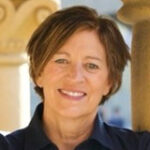 Jo Boaler is a British education author and Nomellini-Olivier Professor of Mathematics Education at the Stanford Graduate School of Education. Boaler is involved in promoting reform mathematics and equitable mathematics classrooms. She is the co-founder and faculty director of youcubed a Stanford centre that offers free mathematics education resources to teachers, students and parents. She is the author of 18 books, including Limitless Mind (2019), Mathematical Mindsets (2016), What’s Math Got To Do With It? (2009) and The Elephant in the Classroom (2010), all written for teachers and parents with the goal of improving mathematics education in both the US and UK.
Jo Boaler is a British education author and Nomellini-Olivier Professor of Mathematics Education at the Stanford Graduate School of Education. Boaler is involved in promoting reform mathematics and equitable mathematics classrooms. She is the co-founder and faculty director of youcubed a Stanford centre that offers free mathematics education resources to teachers, students and parents. She is the author of 18 books, including Limitless Mind (2019), Mathematical Mindsets (2016), What’s Math Got To Do With It? (2009) and The Elephant in the Classroom (2010), all written for teachers and parents with the goal of improving mathematics education in both the US and UK.
Wojciech Wątor
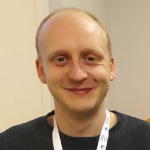 Wojciech Wątor graduated at the University of Kazimierz Wielki in Bydgoszcz with a Master’s degree in mathematics focused on teaching. He has been actively involved in education throughout his academic journey serving as the president of the Mathematics Teachers Association at the university.
Wojciech Wątor graduated at the University of Kazimierz Wielki in Bydgoszcz with a Master’s degree in mathematics focused on teaching. He has been actively involved in education throughout his academic journey serving as the president of the Mathematics Teachers Association at the university.
As a mathematics teacher with a keen interest in neurodidactics and modern teaching methods, he incorporates contemporary technologies into his classes.
Wojciech is a proactive member of the Association of Mathematics Teachers, engaging in workshops and conferences both nationally and internationally. His exceptional contributions to teaching were acknowledged with the title of “Teacher with Passion” awarded by the Mayor of Krakow in 2018.
SPEAKERS
3rd SESSION
Olli-Pekka Heinonen
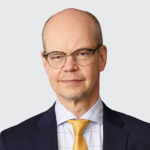 Olli-Pekka Heinonen holds a Master of Laws (LL.M.) from the University of Helsinki and served as the Director General of the Finnish National Agency for Education from 2016 to 2021, overseeing tasks related to the development of education, training, early childhood education, and lifelong learning. His prior roles include positions in the Finnish Government, amongst them State Secretary and Minister of Education and Science, as well as senior positions in the Finnish National Broadcasting Company
Olli-Pekka Heinonen holds a Master of Laws (LL.M.) from the University of Helsinki and served as the Director General of the Finnish National Agency for Education from 2016 to 2021, overseeing tasks related to the development of education, training, early childhood education, and lifelong learning. His prior roles include positions in the Finnish Government, amongst them State Secretary and Minister of Education and Science, as well as senior positions in the Finnish National Broadcasting Company
Actively engaged with international organizations, particularly the OECD, Olli-Pekka Heinonen contributes perspectives on the future of education, emphasizing personalized and lifelong learning, technology’s impact, and educator development. His global involvement includes regular participation as a speaker in educational forums.
Veronica Boix Mansilla
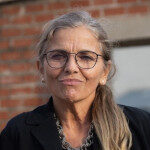 Veronica Boix-Mansilla is Senior Principal Investigator at Project Zero, Harvard Graduate School of Education, heading the IdGlobal and Re-Imagining Migration projects. Hailing from Argentina, she’s a global authority on global competence and interdisciplinary education. Her focus is on preparing the younger generation for a complex world, emphasizing intercultural awareness and training in cognitive sciences, human development, and education. Her research spans global competence development, interdisciplinary education, and quality teaching in disciplines. Boix-Mansilla has contributed frameworks and tools for educators globally, co-authored the concept of global competence, and co-developed the OECD-PISA Framework on Global Competence. She drives projects like Re-Imagining Migration and co-founded the L@titud project, fostering educational reform in Latin American schools. A trusted advisor for various institutions, she has authored numerous studies, including the acclaimed “Educating for Global Competition: Preparing our youth to engage the world,” co-written with Tony Jackson.
Veronica Boix-Mansilla is Senior Principal Investigator at Project Zero, Harvard Graduate School of Education, heading the IdGlobal and Re-Imagining Migration projects. Hailing from Argentina, she’s a global authority on global competence and interdisciplinary education. Her focus is on preparing the younger generation for a complex world, emphasizing intercultural awareness and training in cognitive sciences, human development, and education. Her research spans global competence development, interdisciplinary education, and quality teaching in disciplines. Boix-Mansilla has contributed frameworks and tools for educators globally, co-authored the concept of global competence, and co-developed the OECD-PISA Framework on Global Competence. She drives projects like Re-Imagining Migration and co-founded the L@titud project, fostering educational reform in Latin American schools. A trusted advisor for various institutions, she has authored numerous studies, including the acclaimed “Educating for Global Competition: Preparing our youth to engage the world,” co-written with Tony Jackson.
Li Yongzhi
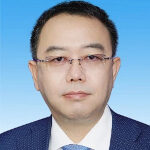 Dr. Li Yongzhi was appointed as the new President of the China National Academy of Educational Sciences on December 27, 2022 by the Ministry of Education. Dr. Li Yongzhi graduated from Fudan University. He used to work in the Ministry of Education, Donghua University, Shanghai Municipal Education Commission and other organizations. He is Vice Chairman of the Steering Committee for Education and Instruction in Basic Education of the Chinese Ministry of Education, a member of the Second Educational Informatics Research Group of the Ministry of Education, and also a member of the Education Informatization Development Strategy Consulting Expert Group of the Science and Technology Department of the Ministry of Education.
Dr. Li Yongzhi was appointed as the new President of the China National Academy of Educational Sciences on December 27, 2022 by the Ministry of Education. Dr. Li Yongzhi graduated from Fudan University. He used to work in the Ministry of Education, Donghua University, Shanghai Municipal Education Commission and other organizations. He is Vice Chairman of the Steering Committee for Education and Instruction in Basic Education of the Chinese Ministry of Education, a member of the Second Educational Informatics Research Group of the Ministry of Education, and also a member of the Education Informatization Development Strategy Consulting Expert Group of the Science and Technology Department of the Ministry of Education.
Andreas Schleicher
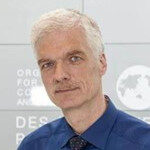 Andreas Schleicher is Director for Education and Skills, and Special Advisor on Education Policy to the Secretary-General at the Organisation for Economic Co-operation and Development (OECD) in Paris. He initiated and oversees the Programme for International Student Assessment (PISA) and other international projects that have created a global platform for policy-makers, researchers and educators across nations and cultures to innovate and transform educational policies and practices. He has worked for over 20 years with ministers and education leaders around the world to improve quality and equity in education. Before joining the OECD, he was Director for Analysis at the International Association for Educational Achievement (IEA). He is the recipient of numerous honours and awards, including the “Theodor Heuss” prize, awarded in the name of the first president of the Federal Republic of Germany for “exemplary democratic engagement”. He holds an honorary Professorship at the University of Heidelberg.
Andreas Schleicher is Director for Education and Skills, and Special Advisor on Education Policy to the Secretary-General at the Organisation for Economic Co-operation and Development (OECD) in Paris. He initiated and oversees the Programme for International Student Assessment (PISA) and other international projects that have created a global platform for policy-makers, researchers and educators across nations and cultures to innovate and transform educational policies and practices. He has worked for over 20 years with ministers and education leaders around the world to improve quality and equity in education. Before joining the OECD, he was Director for Analysis at the International Association for Educational Achievement (IEA). He is the recipient of numerous honours and awards, including the “Theodor Heuss” prize, awarded in the name of the first president of the Federal Republic of Germany for “exemplary democratic engagement”. He holds an honorary Professorship at the University of Heidelberg.
João Costa
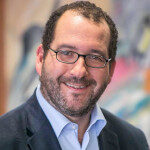 João Costa, with a Ph.D. in Linguistics, is a distinguished researcher in formal linguistics, language acquisition, and educational linguistics, having authored numerous books, articles, and book chapters. He served as Dean at Universidade NOVA de Lisboa and President of the Scientific Council of Social Sciences and Humanities at the Fundação para a Ciência e a Tecnologia. Additionally, he held roles in various linguistic associations and governmental bodies. In March 2022, Dr. Costa became the Minister of Education in Portugal, leading national policies across pre-school, basic, and secondary education, as well as extra-schooling education and vocational training.
João Costa, with a Ph.D. in Linguistics, is a distinguished researcher in formal linguistics, language acquisition, and educational linguistics, having authored numerous books, articles, and book chapters. He served as Dean at Universidade NOVA de Lisboa and President of the Scientific Council of Social Sciences and Humanities at the Fundação para a Ciência e a Tecnologia. Additionally, he held roles in various linguistic associations and governmental bodies. In March 2022, Dr. Costa became the Minister of Education in Portugal, leading national policies across pre-school, basic, and secondary education, as well as extra-schooling education and vocational training.
CONFERENCE DINNER
february 23rd 8.30 pm
Palazzo Grassi Via Marsala, 12 – 40126
At the conclusion of the first day of the international seminar, the social dinner will be held in the warm atmosphere of Palazzo Grassi in the historic center of Bologna. Palazzo Grassi, with a 13th-century layout, is one of the few surviving vestiges of the city’s medieval urban layout. The portico is supported by wooden beams, and the windows are decorated in terracotta.

LOCATION
Sala della Biblioteca di San Domenico Piazza San Domenico 13
By plane
Take the Marconi Express from the airport to the Central Train station
By train
From the Central Train Station there are two buses to get to P.za S.Domenico: bus 30 and shuttle A; stop Tribunale, near P.za S.Domenico.



